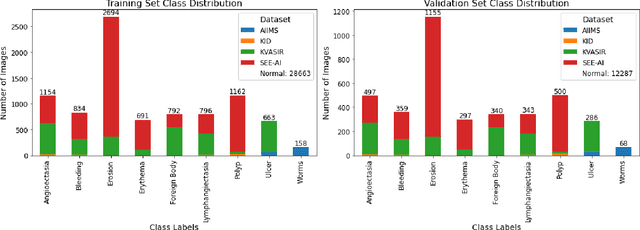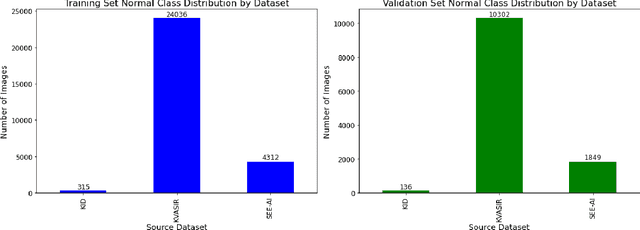Shreshtha Jha
Artificial Intelligence in Gastrointestinal Bleeding Analysis for Video Capsule Endoscopy: Insights, Innovations, and Prospects (2008-2023)
Sep 01, 2024Abstract:The escalating global mortality and morbidity rates associated with gastrointestinal (GI) bleeding, compounded by the complexities and limitations of traditional endoscopic methods, underscore the urgent need for a critical review of current methodologies used for addressing this condition. With an estimated 300,000 annual deaths worldwide, the demand for innovative diagnostic and therapeutic strategies is paramount. The introduction of Video Capsule Endoscopy (VCE) has marked a significant advancement, offering a comprehensive, non-invasive visualization of the digestive tract that is pivotal for detecting bleeding sources unattainable by traditional methods. Despite its benefits, the efficacy of VCE is hindered by diagnostic challenges, including time-consuming analysis and susceptibility to human error. This backdrop sets the stage for exploring Machine Learning (ML) applications in automating GI bleeding detection within capsule endoscopy, aiming to enhance diagnostic accuracy, reduce manual labor, and improve patient outcomes. Through an exhaustive analysis of 113 papers published between 2008 and 2023, this review assesses the current state of ML methodologies in bleeding detection, highlighting their effectiveness, challenges, and prospective directions. It contributes an in-depth examination of AI techniques in VCE frame analysis, offering insights into open-source datasets, mathematical performance metrics, and technique categorization. The paper sets a foundation for future research to overcome existing challenges, advancing gastrointestinal diagnostics through interdisciplinary collaboration and innovation in ML applications.
Capsule Vision 2024 Challenge: Multi-Class Abnormality Classification for Video Capsule Endoscopy
Aug 09, 2024



Abstract:We present the Capsule Vision 2024 Challenge: Multi-Class Abnormality Classification for Video Capsule Endoscopy. It is being virtually organized by the Research Center for Medical Image Analysis and Artificial Intelligence (MIAAI), Department of Medicine, Danube Private University, Krems, Austria and Medical Imaging and Signal Analysis Hub (MISAHUB) in collaboration with the 9th International Conference on Computer Vision & Image Processing (CVIP 2024) being organized by the Indian Institute of Information Technology, Design and Manufacturing (IIITDM) Kancheepuram, Chennai, India. This document describes the overview of the challenge, its registration and rules, submission format, and the description of the utilized datasets.
 Add to Chrome
Add to Chrome Add to Firefox
Add to Firefox Add to Edge
Add to Edge